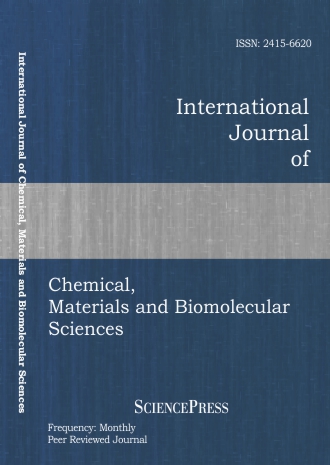
Scholarly
Volume:8, Issue: 4, 2014 Page No: 284 - 291
International Journal of Chemical, Materials and Biomolecular Sciences
ISSN: 2415-6620
Fluidized-Bed Combustion of Biomass with Elevated Alkali Content: A Comparative Study between Two Alternative Bed Materials
Palm kernel shell is an important bioenergy resource
in Thailand. However, due to elevated alkali content in biomass ash,
this oil palm residue shows high tendency to bed agglomeration in a
fluidized-bed combustion system using conventional bed material
(silica sand). In this study, palm kernel shell was burned in the
conical fluidized-bed combustor (FBC) using alumina and dolomite
as alternative bed materials to prevent bed agglomeration. For each
bed material, the combustion tests were performed at 45kg/h fuel feed
rate with excess air within 20–80%. Experimental results revealed
rather weak effects of the bed material type but substantial influence
of excess air on the behavior of temperature, O2, CO, CxHy, and NO
inside the reactor, as well as on the combustion efficiency and major
gaseous emissions of the conical FBC. The optimal level of excess air
ensuring high combustion efficiency (about 98.5%) and acceptable
level of the emissions was found to be about 40% when using
alumina and 60% with dolomite. By using these alternative bed
materials, bed agglomeration can be prevented when burning the
shell in the proposed conical FBC. However, both bed materials
exhibited significant changes in their morphological, physical and
chemical properties in the course of the time.